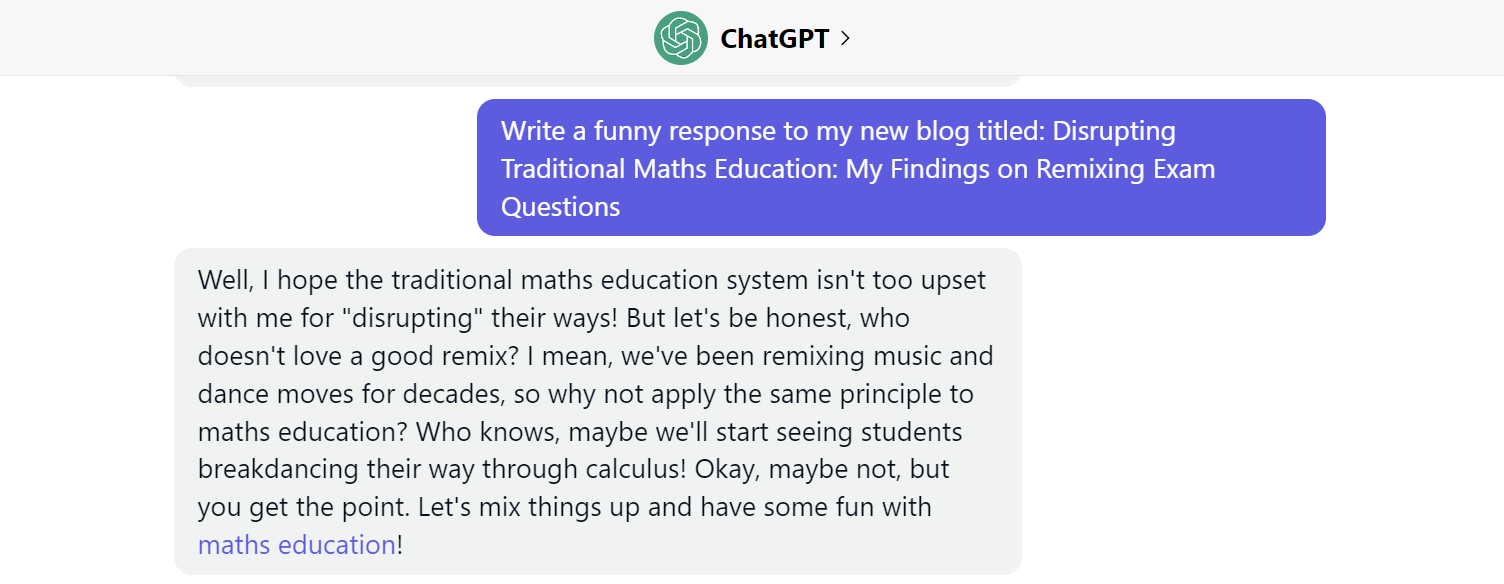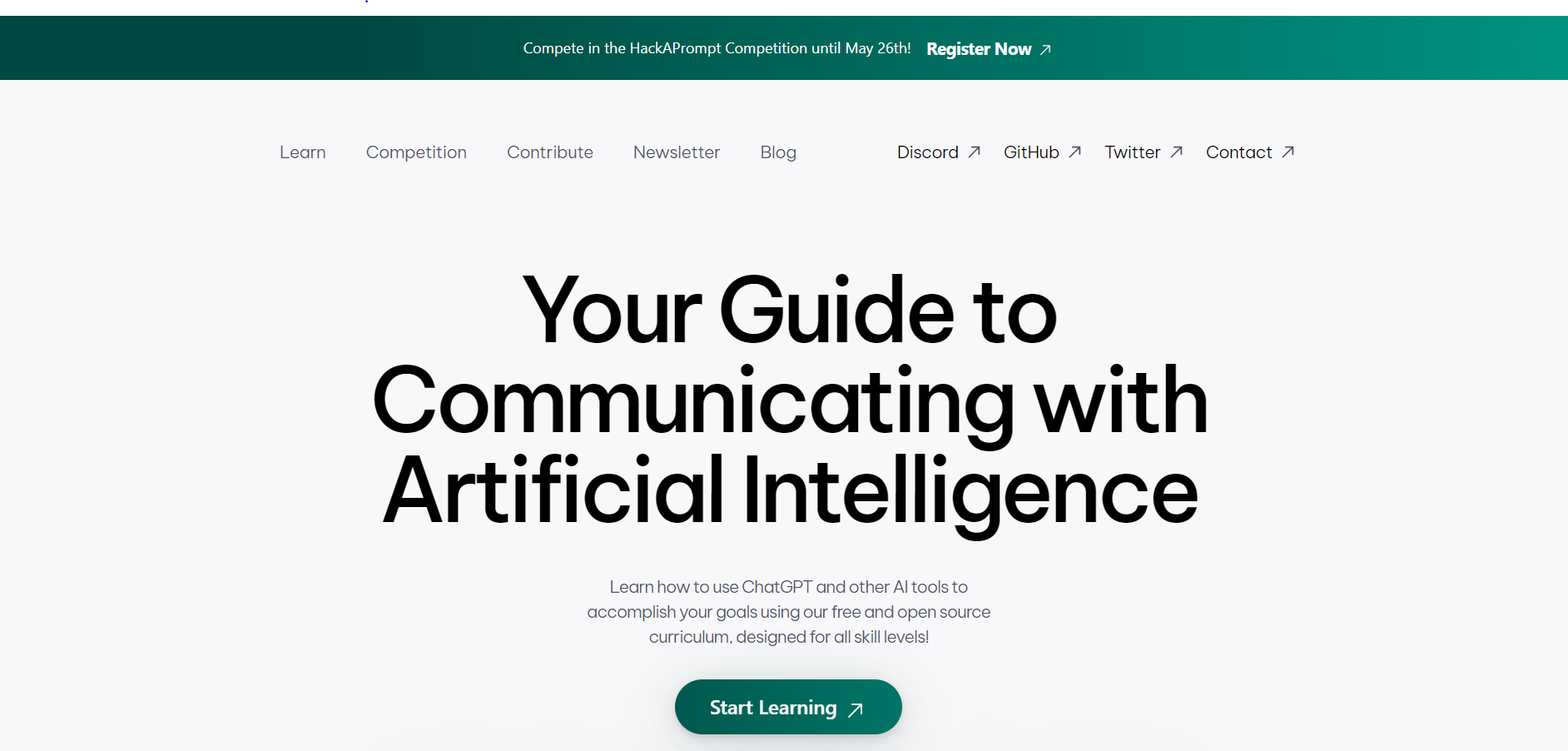As we move forward in the age of technology, the question arises: does education have a choice when it comes to embracing AI? In my opinion, it's a bit like asking in the late 90’s if education should embrace the internet. The answer is clear: we need to understand it, figure out how to integrate it, and move forward with it.
The real question is not "should we embrace AI in education," but rather "how can we effectively integrate AI into our teaching?" This is a question that I have seen posted on various teaching forums, and it's an important one. We must explore the potential benefits and drawbacks of AI in the classroom, and find ways to use it to enhance our teaching methods with the following at the forefront of our minds:
We must balance innovation with responsibility.
(Younes Asri in UX Collective).
AI is becoming increasingly prevalent in many aspects of our lives; 1000’s of tools beyond ChatGPT released monthly and many tech giants laying off swathes of staff. As educators, we have a responsibility to prepare our students for the future, and that means embracing technology in a way that benefits them and is already benefiting their future employers.
So far, AI has proven to be extremely useful in automating the monotonous/clerical sides of teaching as well as for implementing fresh teaching and learning strategies using various tools such as the ones in my previous posts. However, the use of AI tools in the classroom is quite limited. While it can help explain a topic, it can also explain it poorly, and it certainly won't cause your students to care. The social aspect of teaching, such as the bonds formed via learning and problem-solving together with peers cannot be replicated by an AI at the current moment. If teaching was merely transference of knowledge then an AI could do it. But as educators, we know that it's not that simple. The vast majority of students don't naturally want to learn what we're teaching them. We have to convince and persuade them to do so, often through compassion, empathy, and by being good role models - especially in the sector I teach in, Further Education (FE).
A huge risk is that students will and are already leveraging AI to cheat (let's face it, not all students are using AI to enhance their learning, but instead to circumvent the need to study). To be completely honest, as a former student myself, I might have done the same thing if it was for a course I was not particularly passionate about, able to get to grips with immediately or was low confidence in. As someone who has been involved in various AI communities and projects from their early stages, I have observed that mainstream media and policymakers at universities and colleges are not keeping up with the rapid pace of advancements in AI. It's concerning to see that they may not be fully aware of the potential impact that AI could have on education in the near future; many establishments solely looking at ChatGPT alone for example and not looking at the wider sphere of AI tools that are in development that already address issues that come with academic referencing etc. It's important for educators and policymakers to stay informed and actively engage with AI research and development, in order to effectively integrate AI into education and prepare students for the future.
Some big benefits I could see on the horizon for education is the use of AI tools for students with additional needs; whether it be deciphering, communication or conceptualising; the potential applications are broad and must not be ignored. I am by no means an expert in this sphere of education but I am very much looking forward to what it is going to bring for those who are disadvantaged. A few further benefits - but not limited to - are: 24/7 assistance/support, employability, job interview preparation and potential for homeschoolers to have an at-home assistant - additionally, if I was to wildly speculate; might we see a bigger uptake in homeschooling? Especially across the pond where reportedly many parents are taking their children out of education due to safety concerns.
The rise of AI has sparked concerns about the potential loss of jobs in the education sector and beyond, following the trend seen in tech giants like IBM, Dropbox, and Duolingo, who have laid off employees in monotonous roles. It begs the question: will education follow suit? With the education sector being vast, consisting of many departments especially at Universities and Colleges, it's difficult to predict the extent to which AI will affect the job market in the industry in the coming years.
As for teaching itself, what will happen to those who do not want to adapt or learn? If industry is leading we as educators have no choice but to follow suit; while there might be friction from some members of the education community, I speculate they might not have much choice.
While AI can be a valuable tool, it cannot replace the human element of teaching as it currently stands. As educators, we must find ways to integrate AI in a way that enhances our teaching and benefits our students, while also acknowledging the limitations of technology; we can speculate about the future but we do not truly know what it holds until we get there.






